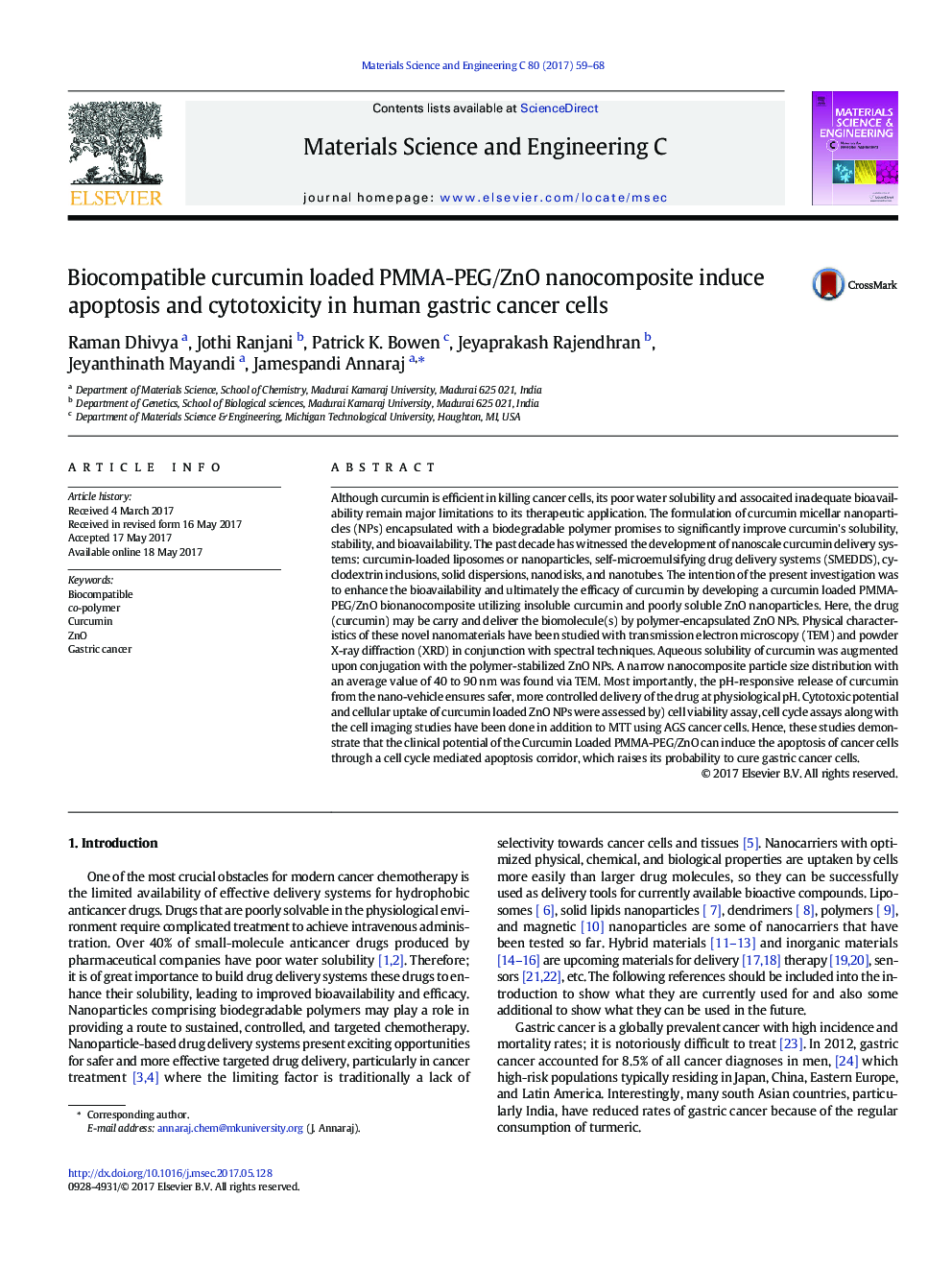| کد مقاله | کد نشریه | سال انتشار | مقاله انگلیسی | نسخه تمام متن |
|---|---|---|---|---|
| 5434294 | 1509141 | 2017 | 10 صفحه PDF | دانلود رایگان |

- The size of the proposed bionanocomposite is >Â 80Â nm.
- Cancer cell growth was controlled by cell cycle arrest in S-phase due the curcumin biding with protein.
- This novel bionanocomposite constitutes a new path towards the clinical implementation of a low-risk,
- Highly efficacious composite vehicle for hydrophobic anticancer drugs
Although curcumin is efficient in killing cancer cells, its poor water solubility and assocaited inadequate bioavailability remain major limitations to its therapeutic application. The formulation of curcumin micellar nanoparticles (NPs) encapsulated with a biodegradable polymer promises to significantly improve curcumin's solubility, stability, and bioavailability. The past decade has witnessed the development of nanoscale curcumin delivery systems: curcumin-loaded liposomes or nanoparticles, self-microemulsifying drug delivery systems (SMEDDS), cyclodextrin inclusions, solid dispersions, nanodisks, and nanotubes. The intention of the present investigation was to enhance the bioavailability and ultimately the efficacy of curcumin by developing a curcumin loaded PMMA-PEG/ZnO bionanocomposite utilizing insoluble curcumin and poorly soluble ZnO nanoparticles. Here, the drug (curcumin) may be carry and deliver the biomolecule(s) by polymer-encapsulated ZnO NPs. Physical characteristics of these novel nanomaterials have been studied with transmission electron microscopy (TEM) and powder X-ray diffraction (XRD) in conjunction with spectral techniques. Aqueous solubility of curcumin was augmented upon conjugation with the polymer-stabilized ZnO NPs. A narrow nanocomposite particle size distribution with an average value of 40 to 90Â nm was found via TEM. Most importantly, the pH-responsive release of curcumin from the nano-vehicle ensures safer, more controlled delivery of the drug at physiological pH. Cytotoxic potential and cellular uptake of curcumin loaded ZnO NPs were assessed by) cell viability assay, cell cycle assays along with the cell imaging studies have been done in addition to MTT using AGS cancer cells. Hence, these studies demonstrate that the clinical potential of the Curcumin Loaded PMMA-PEG/ZnO can induce the apoptosis of cancer cells through a cell cycle mediated apoptosis corridor, which raises its probability to cure gastric cancer cells.
Journal: Materials Science and Engineering: C - Volume 80, 1 November 2017, Pages 59-68